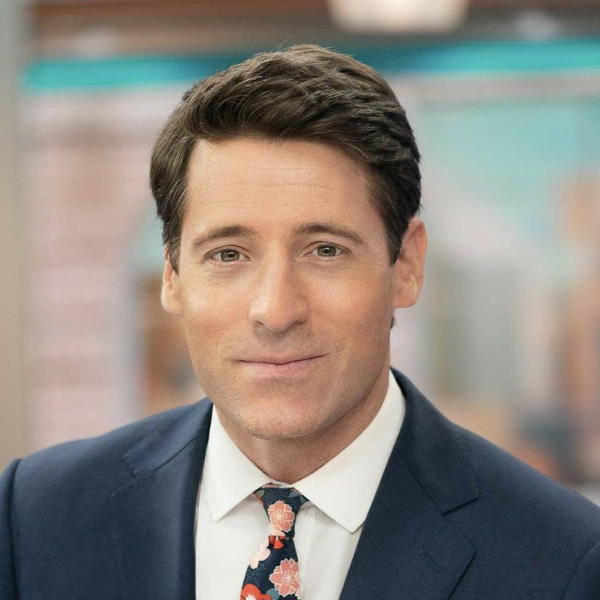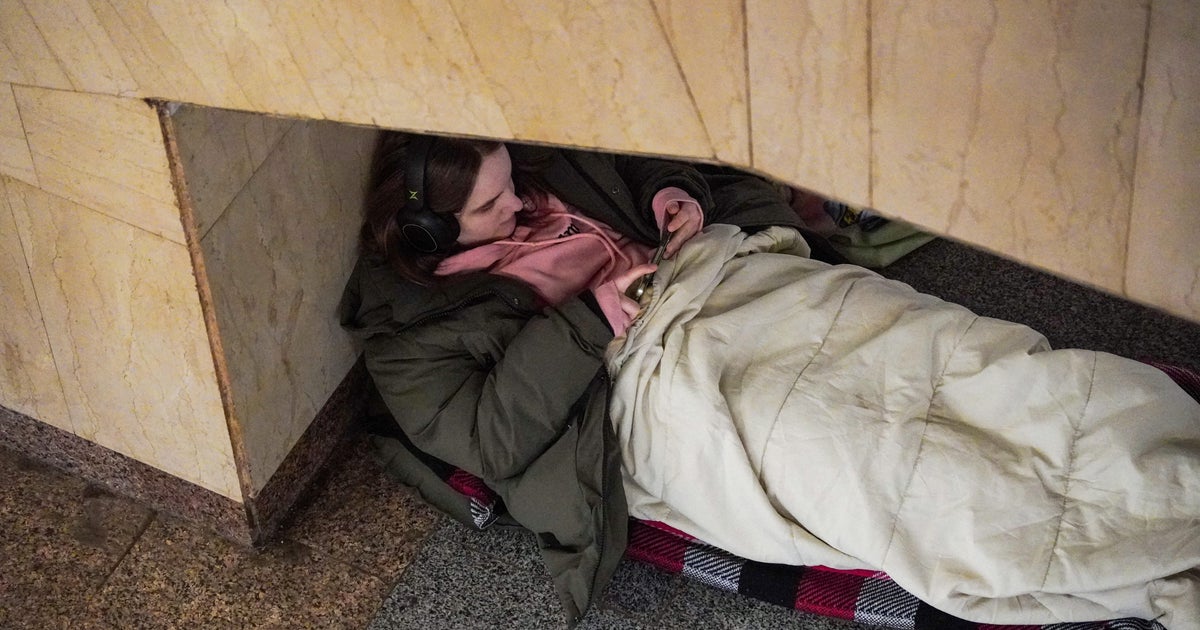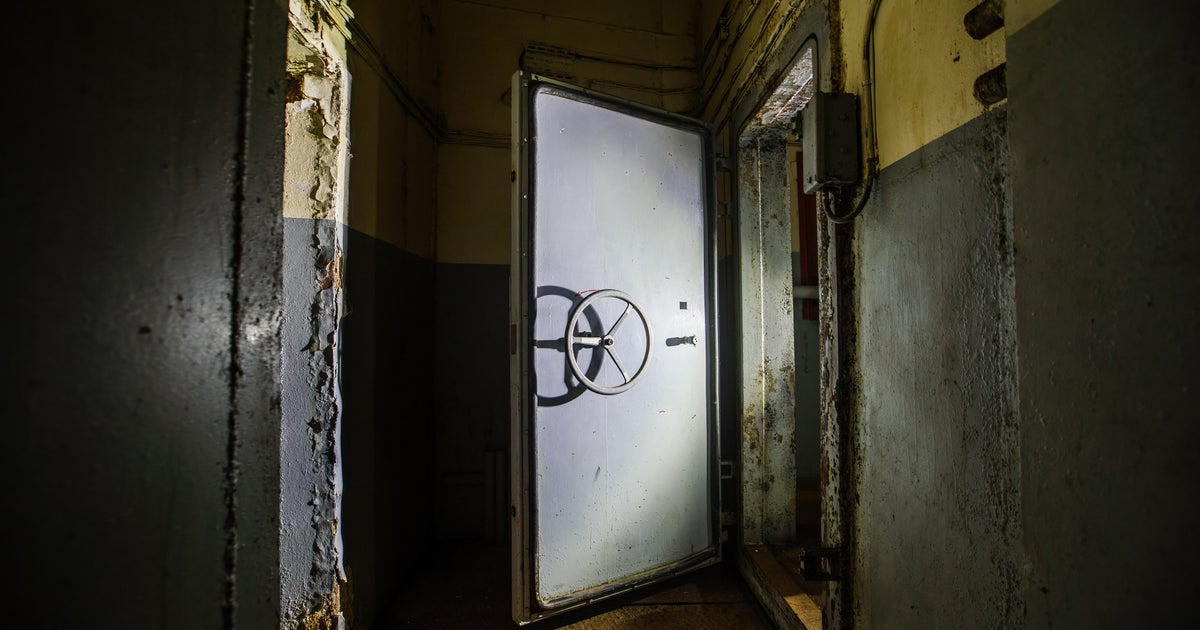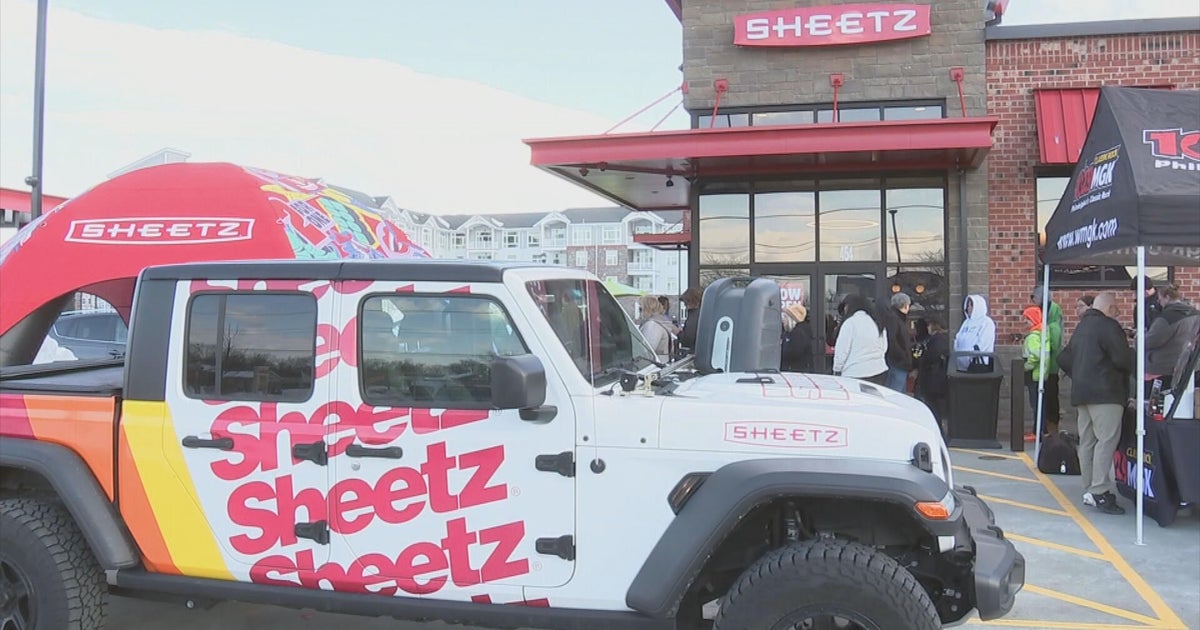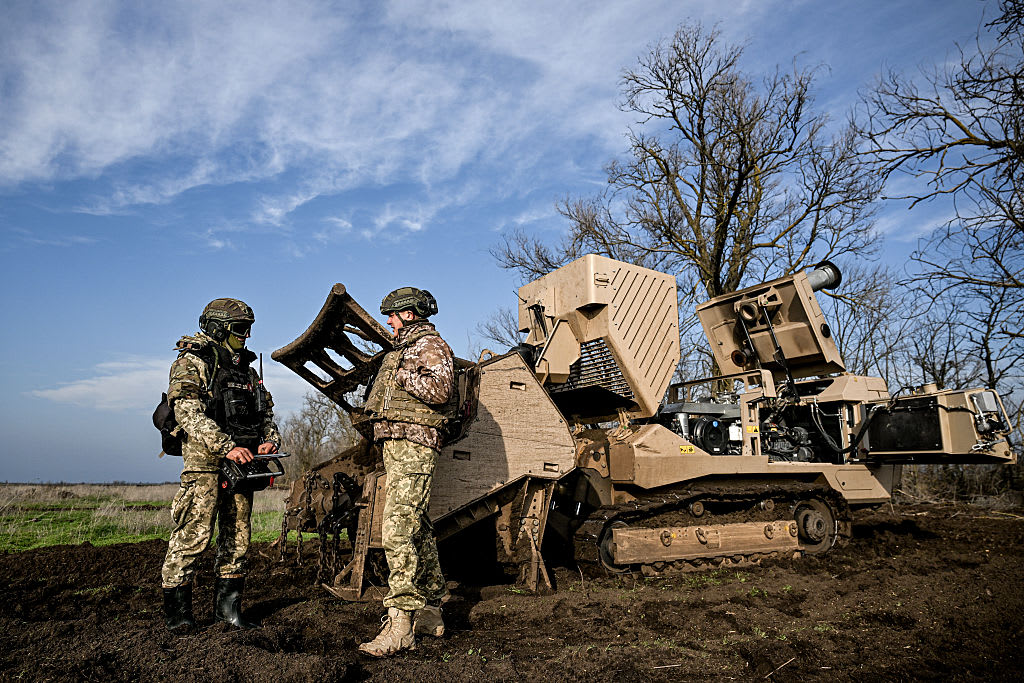Conflict in Ukraine triggers fear of nuclear warfare
The threat of a global nuclear war doesn't feel as distant as it did a few weeks ago. A recent CBS News poll found that 70% of adults are worried Russia's invasion of Ukraine could lead to fighting with nuclear weapons.
Many are curious as to what a nuclear war would look like — so Alex Wellerstein, a historian and professor at the Stevens Institute of Technology, developed a website called "NUKEMAP." It can simulate a detonation anywhere in the world.
As in real life, the simulation begins with just the push of a button. CBS News' Tony Dokoupil and Wellerstein simulated a scenario of what Times Square would look like if it was hit with a bomb like the one that struck Hiroshima.
"There's a sort of zone that's about here, and... which is pretty hopeless, no matter what," Wellerstein said as he pointed to a large section of midtown Manhattan in the simulation.
When larger, more modern bombs were simulated, the website showed a single blast could cause heavy damage throughout the entire metropolitan region and kill millions.
Winds can also carry radioactive particles even further.
"These are areas where, if you're not taking shelter several hours after the bomb, you could get enough radiation to die," Welllerstein said when referring to cities downwind of New York in the simulation. "You could get enough radiation to get significantly sick."
There was a time when Americans were prepared for that kind of attack. In the 1950s and 60s, school children practiced "duck and cover" drills to help survive a blast, and a public campaign educated Americans on surviving the fallout. Office of Civil Defense teams also spent hundreds of millions of dollars building and stockpiling fallout shelters all across the U.S., but a visit to the basement of a public library in Passaic, New Jersey, reveals this threat has fallen into the very back of our minds.
In a space that was designed to shelter up to 90 people, decades of dust has settled over the medicine and food — which has long since expired — in the basement. Building supervisor Gary Salvatoriello told CBS News there are no plans for replenishment. Instead, the one-time fallout shelter, like so many others, has turned back into an everyday storage space.
George Washington University professor Sharon Squassoni said she's been warning about the risk of nuclear conflict for years.
"The lessons of the Cold War seem to have been forgotten," she said.
The number of nuclear weapons has decreased dramatically since the Cold War. But Russia and the U.S. each have more than 1,500 weapons deployed and ready to fire. Squassoni said she fears that could happen eventually, either by accident or an intentional attack.
"We know from Russian doctrine that they have a plan or they've been thinking about using nuclear weapons to escalate the war, to stop it or deescalate it," she said.
The big question is: what would happen after an initial attack?
"The world would recoil in horror. And I'm sure there would be a lot of voices demanding for some kind of similar action. But do you really want to trigger the third world war? A third nuclear war?" Squassoni said.
"I don't think that Vladimir Putin wants to tangle with NATO," she added. "I don't think he wants to tangle with the U.S. But I also think that we've been misreading him for quite a while."
The truth is there is very little standing in the way of an all-out nuclear war.
"The only thing that really stands is that... it is not really in the interests of our enemies to have that happen to them either," Wellerstein said.
Even though nuclear weapons haven't been used in battle since 1945, Wellerstein said the threat they post never really went away.
"We have a long list of stuff to worry about. But I think they should be on the list. I'm not saying they should be the top of the list all the time. But I think if they were on the list, you might get a somewhat different world as a result," he said. "Future problems are brewing, I guarantee it."
